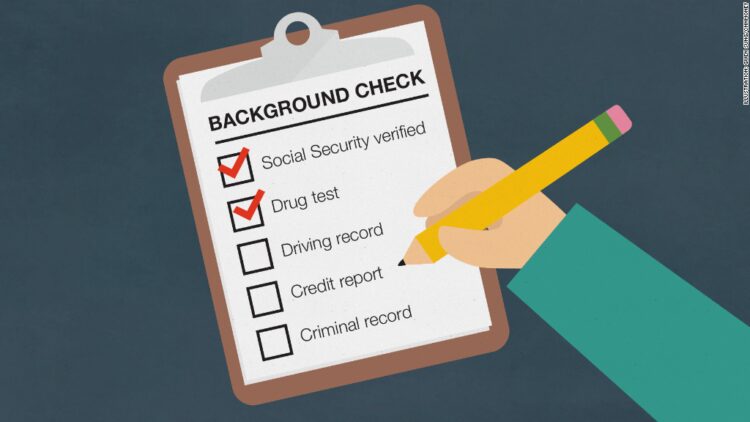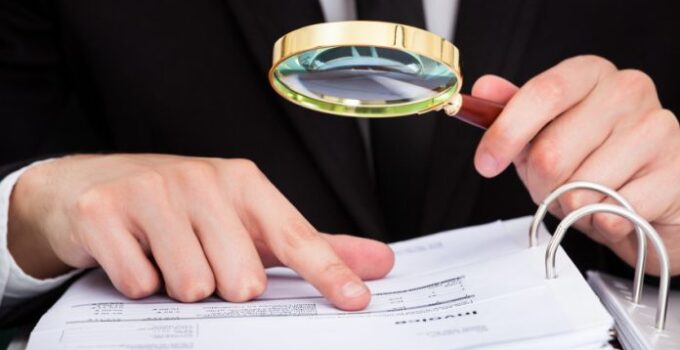If you’re thinking about doing a background check on yourself or researching to see what’s available to the public about you, you aren’t alone. This is something people do for different reasons.
If you do run a background check on yourself, especially before applying for a job or going through some other life change, you may be able to fix things that you find that aren’t correct or could be problematic.
The following are things to know about running a background check on yourself.
Page Contents
What Shows Up on a Background Check?

Source: privateeyesbackgroundchecks.com
A background check can reveal pretty sensitive, private information.
The term background check is used as an umbrella reference, but in reality, there are several types of background checks. Each type might uncover different personal information.
The information that’s on a background check might be subject to regulations for privacy protection, so employers and other entities have to be careful and make sure they’re within their legal rights.
If a background check is used as part of a hiring decision, it’s subject to the Fair Credit Reporting Act and the regulatory requirements of the Equal Employment Opportunity Commission. There may be additional state and local guidelines dictating the sharing and maintaining of the information.
Almost all background checks, at a minimum, include a criminal history check. Most criminal background checks show any felony or misdemeanor convictions, pending criminal cases, and adult incarceration history.
An arrest that didn’t lead to a conviction might show up in some background checks.
Most juvenile detentions and convictions won’t show up in a criminal background check.
Depending on who’s doing it and why they’re doing it, something like a pre-employment background check might include a lot of other information, including verification of education, employment, and professional licenses.
Sometimes you might hear the term fingerprint background check. That involves using your fingerprints as well as your personal information to find your records.
All records associated with a set of fingerprints are pulled, but this is typically reserved for rare situations like certain jobs with the federal government.
Reasons to Run a Background Check on Yourself

Source: sapphirecheck.com
According to Unmask, the primary reason you would probably consider running a background check on yourself is if you’re looking for a new job or you have an interview coming up. You want to prepare and see what’s on there and what the potential employer might see.
Specific reasons people often run checks on themselves include:
- If there’s anything unflattering, but you’re prepared, you can explain it during your interview.
- Not all background checks are accurate. For example, it’s more common than you might think for a conviction to be miscataloged and filed under the wrong record. This is even more likely if you have a common name. If you run a background check, you can find and work on remedying wrong information.
- Running a background check on yourself helps you understand more about the process, which can be helpful. People tend to have a lot of misconceptions about how they work and the type of information on them.
- If you’ve ever been convicted of a crime but had it expunged, you definitely want to run a check on yourself to make sure that it actually was. If you went through the entire process to get your records expunged or sealed, then that’s what should happen.
- You might feel more confident going into an interview or a stressful situation if you know what the other person knows about you.
- You could check your background if you’re planning on renting a new home. Landlords increasingly rely on looking at the financial and criminal histories of potential tenants before renting to them. If you look through your records ahead of time, you may be able to provide a landlord with supplemental information that would show you will be a good tenant.
Beyond the criminal history part of a background check, it’s important to look at your financial history.
For example, you should go over your credit report at least once a year. These very often have errors, and they can affect your job, your ability to borrow money, the interest rates you’re offered, and more.
How to Run a Background Check on Yourself
It’s fairly simple to run a background check on yourself because there are so many online tools that make it easy for you. Since you’re doing it on yourself, and you’re not a hiring manager or something similar, you don’t have to worry as much about legal issues and regulations.
You can usually request your public records for free and theoretically get them for free as well because you have that right. The issue is that it’s time-consuming to track down all of your records, and you may still have to pay administrative fees.
Running a comprehensive online check can save time and often money.
If you’ve lived in multiple states or localities, the costs can add up even more, again making a consolidated report a good option.
How to Explain Issues

Source: thejobnetwork.com
Depending on the situation, if there is something on your record that could be problematic, by knowing that, you’re empowered to be able to handle the situation more effectively.
For example, if you’re in an interview, you can provide explanations, but be careful to avoid excuses.
If you were in a situation where you messed up, you could briefly talk about what you learned from it and how you moved forward. Don’t dwell on it, though.
It can be a little bit scary to look at your own background, but you have to do so to prepare yourself and to fix any issues that you might find. If there’s incorrect information on your record, there’s no way it’s going to fix itself. You have to fix it proactively.
If you find an error, you need to contact the associated public agency.
It’s better to do these things ahead of time than risk losing something like a job or home over your record.





